Lenora Rogers's Blog, page 32
June 20, 2017
Dorne and Burgundy: Unbent, unbound, unbroken and hell bent on revenge
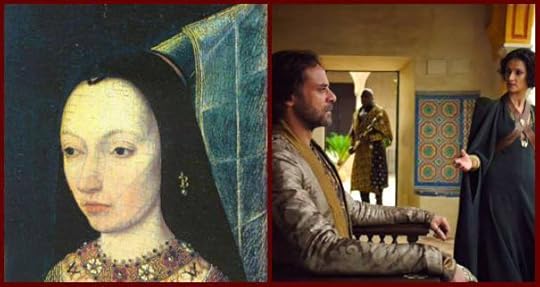 Revenge is a dish best served cold, but for some people, it sets them off on a more dangerous path where they end up deceiving themselves to justify their actions. That is how I perceive Ellaria/Doran’s actions in the TV show, books and their historical counterpart, Margaret of York. Dorne has similarities with other influential kingdoms in Western Europe from the middle ages and early modern era, but for the current events in game of thrones/ a song of ice and fi...
Revenge is a dish best served cold, but for some people, it sets them off on a more dangerous path where they end up deceiving themselves to justify their actions. That is how I perceive Ellaria/Doran’s actions in the TV show, books and their historical counterpart, Margaret of York. Dorne has similarities with other influential kingdoms in Western Europe from the middle ages and early modern era, but for the current events in game of thrones/ a song of ice and fi...
Elizabeth Morton and ‘The Gentleman in Black’
Elizabeth Morton was baptized May 4th May 1747 in the small, rural Nottinghamshire village of Misterton, daughter of Thomas and Elizabeth. She had three siblings – Mary (25th September 1743), Thomas (25th Sept 1757) and Ann (1757).
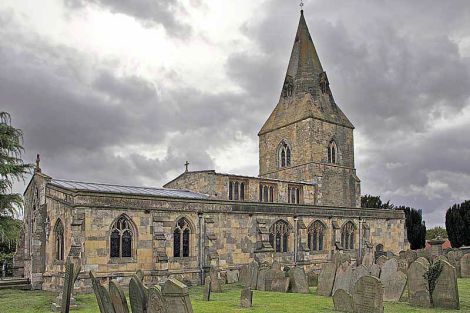 All Saints Church, Misterton. Courtesy of Southwell and Nottingham Church History Project
All Saints Church, Misterton. Courtesy of Southwell and Nottingham Church History Project
When just 15 years old she had gained employment as a servant in the neighbouring village of Walkeringham, just over 2 miles from her home, for a farmer...
June 19, 2017
Mary of Guise
 Mary of Guise ( Queen Regent of Scotland)
Mary of Guise ( Queen Regent of Scotland)
Mary of Lorraine, better known as Mary of Guise, Queen to James V, and regent of Scotland was born at Bar on the 22nd November 1515, to parents Claude of Guise and Antoinette of Bourbon.
Mary of Guise married Louis II of Orleans, Duke of Longueville in 1534, and bore him a son Francis in 1535. In the June of 1537, her husband, the Duke of Longueville died.
Mary was in her early twenties, and sought in marriage by James V,...
The Tree That Sparked an Industry and a Riot
 The mighty Eastern White Pine.
The mighty Eastern White Pine.
“Notable high timber trees”
In May of 1605 explorer Captain George Waymouth and his crew arrived off the coast of the “Northern part of Virginia” as that part of the New World was called. They were on a small island off the coast of what is now known as Maine and near the mouth of the Tanahock River, later to be known as the St. George’s River.
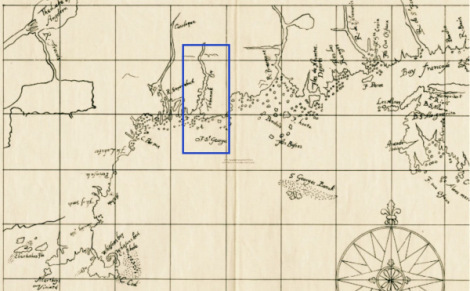 A copy of a copy of the 1610 Simancas (Spain) archive map. Waymouth’s explorations are in the area o...
A copy of a copy of the 1610 Simancas (Spain) archive map. Waymouth’s explorations are in the area o...
Katherine Dexter McCormick; Godmother to the birth control pill
Katharine Dexter was the first woman to get a science degree from the Massachusetts Institute of Technology, graduating in biology in 1904. The curriculum was research heavy and besides the demanding work, she had to petition the college twice—once for permission to work in chemistry laboratories without a hat and again to be allowed to wear a shorter skirt. The reason for the later—she didn’t want her dress to drag across the unclean floors. Her plan was to go into medicine.
June 13, 2017
Edith Roosevelt: Raising Eagles
Edith Carow Roosevelt was a mother of six when she became First Lady in 1901.
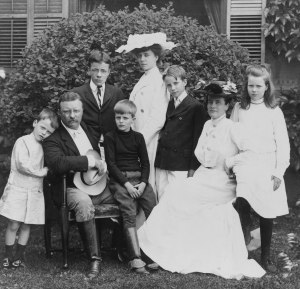 The Roosevelt Family of the White House. (l to r): Quentin, TR, Ted, Archie, Alice, Kermit, Edith and Ethel.
The Roosevelt Family of the White House. (l to r): Quentin, TR, Ted, Archie, Alice, Kermit, Edith and Ethel.
The “Other” Mrs. Roosevelt
Over the past seventy-five years or more, First Lady Eleanor Roosevelt has eclipsed the name of the “other” Mrs Roosevelt, her aunt-by-marriage: Uncle Theodore’s wife Edith. In her own time, however, Edith Roosevelt (1861-1948) was considered perfect; th...
A Milestone for Irish in the American Civil War
 Irish in the American Civil War
Irish in the American Civil War
The last post represented the 500th on Irish in the American Civil War. I estimate that the site in its totality is now composed of c. 1,000,000 words. I established the site in May 2010, over seven years ago, little imagining where it would lead. The site is now averaging some 10-15,000 views per month, and between 80-100,000 unique visitors per year. Since the early days, I have strived to make the posts both engaging and reliable, adopting a policy of makin...
‘Exeter Change in the Strand’ by William Ellis-Rees
We are delighted to welcome another new guest to All Things Georgian: William Ellis-Rees. William is a Classics teacher with a serious sideline interest in researching and writing on lesser known historical topics. Having published articles on various subjects in Country Life, Garden History and the gardening journal Hortus, he is now about to publish a book on Josephine Bonaparte, which, far from being a full-blown biography of the Empress, sheds light on a fascinating c...
June 12, 2017
Charles V’s visit to England (1522): Part I
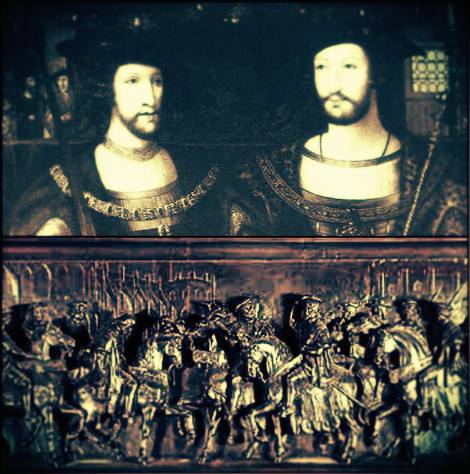
Charles V of the Holy Roman Empire and I of Spain arrived at Dover, England on the 26th of May 1522, where he was greeted by Cardinal and Archbishop of York, Thomas Wolsey and an entourage of 300 select Englishmen. Henry VIII met with him two days later “with much joy and gladness” while he was still at Dover.
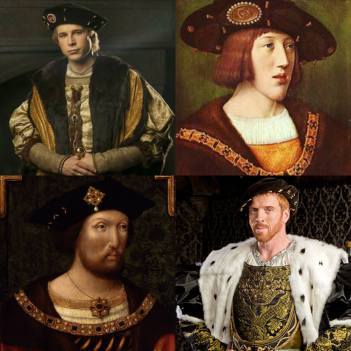 Charles V from Carlos, Rey Emperador (2015) opposite an early portrait of Charles as King of Spain. Below, a middle aged Henry VIII and next to him is Damien...
Charles V from Carlos, Rey Emperador (2015) opposite an early portrait of Charles as King of Spain. Below, a middle aged Henry VIII and next to him is Damien...
Black Ships
My title is literal, or descriptive. While the phrase “Black Ships” has a larger historical and cultural meaning, as a term used by the Japanese to refer to western vessels approaching their shores in the sixteenth and nineteenth centuries (with a long stretch of relative isolation in between), in my typical materialistic fashion I’m referring to my latest collection obsession: reverse glass painted silhouette ships. It’s a potential collection, because I haven’t actually coll...










